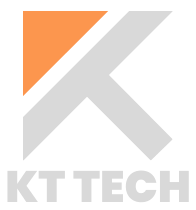1. OpenAI Aims to Add Smart Speaker, AI Glasses, Recorder and Pin to Its Hardware Range
OpenAI is reportedly working on several new hardware products, including a smart speaker, AI‑enabled glasses, a voice‑recording device and a mini‑wearable pin. The move follows the company’s recent expansion into physical devices that could complement its ChatGPT and other AI services. Analysts say the products may leverage OpenAI’s language models to provide contextual responses and hands‑free interaction in everyday settings.
Read full story
2. xAI Releases Grok 4 Fast – Faster, Cheaper AI Model
xAI has launched Grok 4 Fast, its latest AI model that sharpens reasoning capabilities while cutting token‑costs by about 40%. The upgrade harnesses reinforcement learning to optimise performance, reducing computational expenses for developers and users alike.
Read full story
3. Google & PayPal Team Up to Transform Shopping with AI‑Driven Payment Protocol
Google and PayPal have joined forces to launch a new AI‑powered shopping bridge that will act as a middleman between buyers and merchants. The collaboration introduces a multi‑year partnership aimed at simplifying online payments and enhancing the checkout experience. The new payment protocol, backed by a wide range of merchants, will leverage artificial intelligence to match shoppers with the best offers, speeds up transactions, and potentially lowers costs for both consumers and retailers. This move positions both companies at the forefront of a commerce ecosystem that is increasingly driven by smart technology and seamless payment solutions.
Read full story
4. Stan Lee Returns as AI Hologram at L.A. Comic Con
Fans at the 2024 L.A. Comic Con will meet a lifelike AI hologram of the late comic‑book legend Stan Lee. The hologram, created from real footage and advanced generative AI technology, will interact with attendees, answering questions and offering a fresh, immersive experience without the need for a physical presence.
Read full story
5. AI Could Replace Math in Schools by 2050, Harvard Experts Say
Harvard researchers claim that advanced AI systems will soon be able to teach mathematics and handle writing tasks, potentially freeing up curriculums to emphasize ethics, values, and critical thinking in future classrooms.
Read full story
6. Teen Coders Poised to Become the Next Tech Titans
A new wave of teenage developers is set to shape the future of technology by blending AI tools with “vibe coding”, a flexible, intuitive approach that bypasses traditional bootcamps. According to a recent Fortune analysis, these young innovators are not only mastering advanced AI frameworks, but also creating applications that resonate with niche audiences. Experts suggest that the combination of early exposure to coding, access to powerful AI platforms, and a community‑driven mindset positions teens to launch disruptive startups that could rival today’s giants like Apple and Google. While the journey involves navigating intellectual property and monetisation challenges, the supportive ecosystem of online learning and mentorship is accelerating the rise of this next generation of tech leaders.
Read full story
7. Apple’s Local AI Powers New Developer Features
Developers are now harnessing Apple’s latest on-device AI models in iOS 26 to create a range of new features that run entirely on the user’s phone. From auto‑generating stories and creating visual content to providing instant financial insights, these tools keep data within the device, enhancing privacy and reducing reliance on cloud services. The integration promises faster response times and new creative possibilities for app developers across the ecosystem.
Read full story
8. Microsoft Launches AI Datacenter Powering 10x Supercomputers
Microsoft has opened a groundbreaking AI data centre equipped with Nvidia GPUs that delivers ten times the processing power of the world’s leading supercomputers. The facility, located in the U.S., is designed to accelerate machine‑learning workloads, enhance cloud AI services, and support large‑scale research projects. Scalable architecture and high‑density GPU setups enable rapid model training and inferencing, positioning Microsoft at the forefront of AI innovation worldwide.
Read full story



